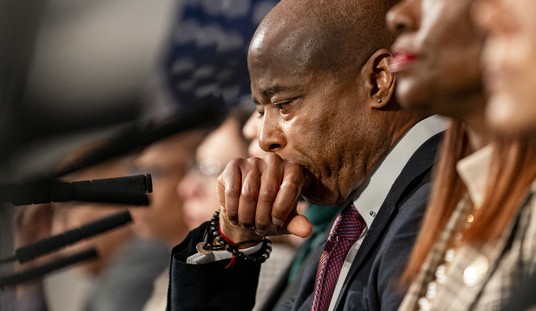Barack Obama has spent the last several weeks warning that a failure to raise the debt ceiling by the “drop-dead date” of August 2nd would cause a ruinous downgrade of Treasury bonds and an economic disaster for the US. However, the downgrade may come sooner than that, because the debt ceiling is actually a secondary condition to the ratings agencies. The problem, as they see it, is not that America can’t pay its debts next month, but that America has grown its debt to such a degree that we can’t pay them in the long run without serious restructuring of the federal government — and this administration refuses to consider it:
Only seven days stand between the U.S. and the effects of a credit default. But a downgrade of the nation’s stellar AAA credit rating seems a lot more likely, and a lot sooner.
The White House had been alerted repeatedly over the past month by rating agencies that without a strong, long-term plan to restructure the country’s debt, they would lower America’s credit rating as soon as this Friday, according to two officials familiar with the process. The White House was warned that the deal would have to be significant—and not a short-term fix over the next few days to avoid a credit drop. …
Some analysts have given up hope for the U.S. maintaining its rating. “We’re at a point that the odds of having a downgrade make it pretty much inevitable,” says Peter Cohan, a financial analyst and head of venture capital firm Peter S. Cohan and Associates. “I see a downgrade as being inevitable. The question is whether markets see that as being significant.”
With so many moving parts in the global economy, it’s difficult to measure the precise impact of aU.S. credit downgrade on the global economy. One specific effect would be a mass sell-back of U.S. bonds. Billions of dollars in outstanding bonds are held by people, countries, and agencies that only hold bonds guaranteed by AAA sellers. All of those would likely move immediately to sell in the wake of a credit downgrade, or change internal policies to retain the bonds. The ratings of all viable U.S. institutions, including Fannie Mae and Freddie Mac, would fall as well, potentially increasing mortgage-interest rates and borrowing costs on other loans.
So it’s not the debt ceiling that’s triggering a potential ratings change — it’s the trajectory of debt generated by the federal government. This explains why the White House abandoned its “clean debt-ceiling increase” demand so early in the process. It wouldn’t have done anything to avoid a downgrade anyway.
The debt-ceiling debate does impact the ratings agencies’ decision in one way: it forced Congress and the American people to confront the problem of escalating deficits and runaway entitlements. That’s the debate we need to have, and the debate that Obama has been hoping to avoid. Unfortunately, any significant restructuring of debt and future liabilities has to involve restructuring the programs that by far generate the worst of both. Obama knows this, but doesn’t want to lose his party by participating in the inevitable reform of Medicare and Social Security. Instead, he refuses to offer any plan, and hopes that Congress will rescue him from himself.
As I wrote earlier, that’s leadership in the era of Hope and Change.
Instead, as early as Friday, the bill will come due for decades of overspending and averting our eyes from the easily-calculated entitlement catastrophe that we built. As long as we keep doing that, we are a poor risk for more loans, and the ratings agencies will only be reflecting reality when they match our ratings to our behavior.
Addendum: Jake Tapper picks up on the fact that the “drop-dead date” might have dropped out a little further:
It does not appear that date any longer will be the day will be the one when the U.S. officially no longer has the ability to pay its bills.
On Aug. 3, the federal government will have $32 billion in payments to make. Will the U.S. government have the money to make those payments? Previously analyses said no.
Now, however, analysts at Barclays Capital Research say incoming revenues to the U.S. Treasury have been a little stronger than projections — on the order of $14 billion.
So Barclays now says the government will have enough funds to pay its bills until Aug. 10.
Final thought: There is no small amount of irony in S&P and Moody’s punishing the US for its bad debt behavior. Democrats pilloried the ratings agencies in 2008-9 for their role in overestimating the soundness of financial institutions before the economic collapse of 2008. They accused the agencies of ignoring the very behaviors in which Congresses and White Houses under the control of both parties engaged and insisted that these agencies do a better job of highlighting risks. Be careful what you wish for …








Join the conversation as a VIP Member